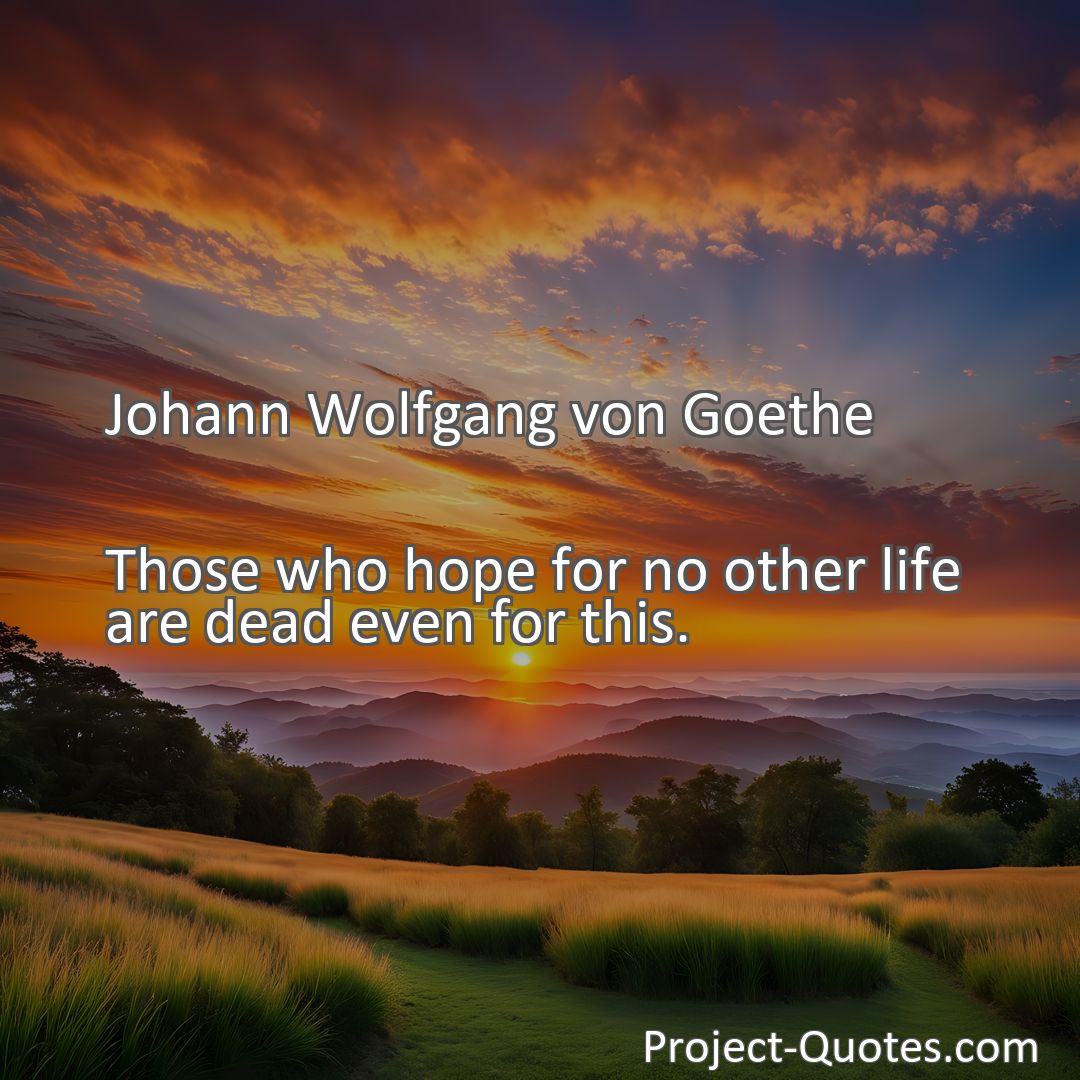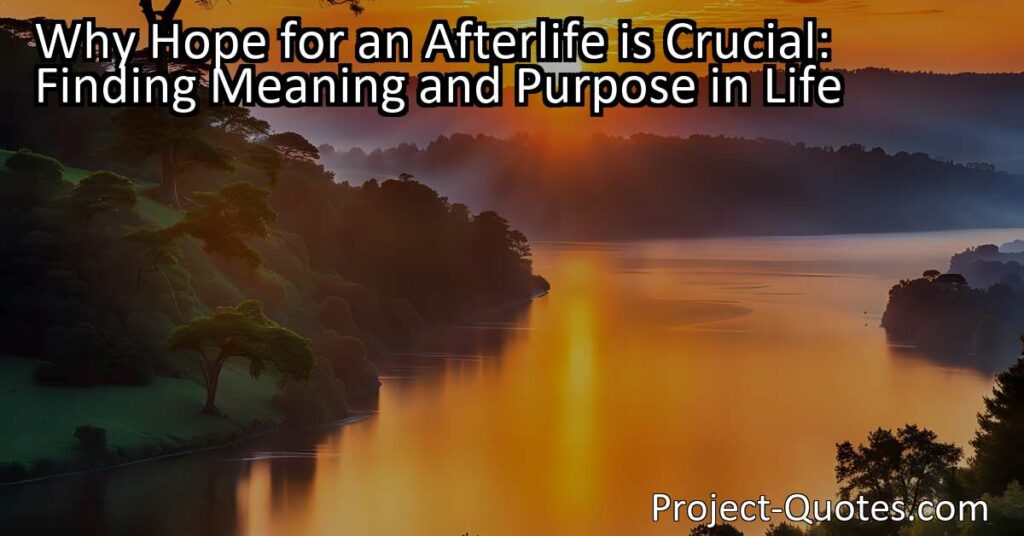Those who hope for no other life are dead even for this.
Johann Wolfgang von Goethe
Many individuals may feel lost without the hope for an afterlife or something greater. Goethe’s quote emphasizes the significance of having a belief in a higher existence, as it provides meaning and purpose to our present lives. Without this hope, our current existence can feel empty and devoid of true significance.
Table of Contents
Meaning of Quote – Those who hope for no other life are dead even for this.
Have you ever wondered about the meaning of life? Or have you pondered over what happens after we take our last breath? These existential questions have fascinated humans for centuries, and Johann Wolfgang von Goethe, a renowned German writer, once beautifully encapsulated this curiosity when he said, “Those who hope for no other life are dead even for this.” In this quote, Goethe presents the notion that without hope for an afterlife or something beyond our mortal existence, we are essentially living a life devoid of true meaning and purpose.
When examining Goethe’s quote, it becomes clear that he believes the concept of an afterlife or an existence beyond our earthly realm is crucial for a fulfilling and meaningful life. By introducing the idea that those who have no hope for another life are “dead even for this,” Goethe suggests that even our current life loses its significance without the belief or hope in something greater.
But what exactly does Goethe mean by being “dead even for this”? Is he implying that life without an afterlife is pointless? To fully understand the depths of his statement, we delve into the human psyche and explore the universal desire for transcendence.
As humans, we possess a natural inclination to seek purpose, to find deeper meaning in our existence. Throughout history, various societies and cultures have developed religious and spiritual beliefs as a means to satisfy this craving for transcendence. These beliefs often revolve around the idea of an afterlife, a realm where the soul lives on beyond death. Without the hope for this continuation, many individuals may feel lost, as if their present life holds no ultimate significance.
Consider, for a moment, the idea of mortality. We are born, we live, and eventually, we all will die. This cycle can be both awe-inspiring and terrifying. While some find solace in the idea of an afterlife, others struggle with the concept of oblivion. Questions arise in our minds: What happens to us when we die? Does our time on Earth have any lasting impact?
Goethe’s quote forces us to confront these fundamental existential questions. It serves as a reminder that without the hope of something beyond our current existence, our present life loses its enchantment and purpose. By aligning ourselves with the belief in a greater existence, we derive motivation, inspiration, and direction. This hope allows us to find solace in the face of mortality and to live each day with intention and meaning.
Furthermore, the concept of an afterlife provides us with a framework to navigate the complexities and hardships of life. When faced with adversity, the belief in an eternal existence offers comfort and reassurance that there is light beyond the darkness. It gives us the courage to persevere, knowing that our efforts will not be in vain and that justice will eventually prevail.
In addition to its personal benefits, the concept of an afterlife also serves as a moral compass for many individuals. The idea that our actions in this life will have consequences in the next can inspire us to lead virtuous lives, to treat others with kindness and respect, and to strive for personal growth. This belief in cosmic accountability fosters a sense of responsibility and encourages us to make choices that align with higher principles.
However, it is important to acknowledge that perspectives on the afterlife vary across different cultures and religions. While some envision heaven or hell, others believe in reincarnation or transcendence into the cosmic universe. Each interpretation offers its own unique insights into the purpose of life and the possibilities that lie beyond our current existence. Regardless of the specifics, what unites these beliefs is the underlying hope for something more.
Ultimately, Goethe’s quote encourages us to contemplate the significance of hope, particularly in relation to the afterlife. It reminds us that without this hope, our present life can feel empty and devoid of meaning. Whether one embraces a religious, spiritual, or philosophical viewpoint, the belief in an afterlife provides a framework for understanding our purpose and the potential for a higher existence.
As we navigate the complexities of life, let us not dismiss the importance of hope in shaping our worldview. Whether it is through faith, introspection, or philosophical exploration, let us actively cultivate the belief in something greater than ourselves. For in doing so, we breathe life into our present existence, infusing it with purpose, passion, and the profound awareness that there is more to this world than meets the eye. So, let us embrace the hope of another life for in doing so, we truly come alive for this one.
I hope this quote inspired image brings you hope and peace. Share it with someone who needs it today!


